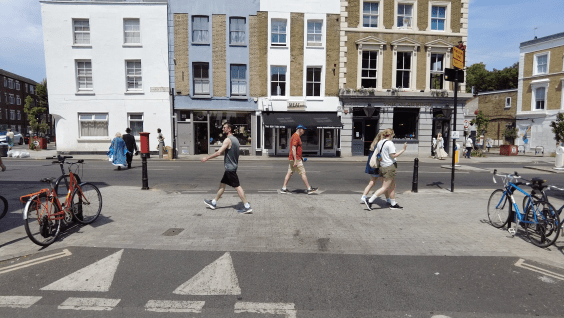
The Municipal Transportation Agency's "Climate Action Plan," a 96-page draft [PDF] released Thursday, strikes some hopeful notes but will it produce results? It calls for a reduction of the agency's overall carbon footprint to meet the city's goal of reducing carbon 20 percent below 1990 levels by 2012. Muni would like to achieve zero emissions by 2020 and thinks it can do it but so far there are no budget or implementation timetables.
In summary, while the SFMTA’s internal footprint is being successfully addressed through ever-cleaner transit vehicles, increased energy efficiency and better waste reduction, the direct measure of the SFMTA’s contribution to reducing the much larger scope of transportation sector emissions will primarily be found in increased transit ridership, increased use of plug-in passenger vehicles, improved parking management, expanded vehicle technology programs, increased provision of bicycle facilities, promotion of walking and increased transit oriented development.
The initial reaction from some Livable Streets advocates was that it seems like another press release and not a living document.
"I hope this isn't another plan that gathers dust on shelves and results in no actual changes. I find it hard to believe that there aren't improvements or changes that could happen now without waiting for yet another study," said Livable City Board President Cheryl Brinkman.
The "Climate Action Plan" was mandated by Proposition A, a Muni reform measure passed by voters in November 2007. The Board of Supervisors has also asked all city departments to produce climate action plans by the end of this month.
"The requirement for a climate action plan was put in there to make the connection to the voters between the more substantive changes in the charter that Prop A had, like a lot more money for the MTA, more control over Muni and global warming," said Dave Synder, the transportation policy director at SPUR.
MTA Executive Director Nathaniel Ford, in an interview at City Hall yesterday, stressed the deep financial challenges that lie ahead in trying to implement the climate action plan because of the state budget crisis, but said he was proud the Muni fleet "is one of the cleanest fleets in the country."
The state funding is to a large degree a lot of our bread and butter in terms of funding. It's something that we've consistently depended on. What it's going to force us to do once again is to take a look at how we can become more efficient inside the organization and then also look at opportunities to increase some of our revenues in terms of some of our advertising contracts, transit-oriented development on properties that we own.
Considering the impending cuts that
will tear into MTA's budget it's easy to be skeptical of yet another
plan that has no secure funding. And how will it ultimately compare to climate action plans in other big cities?





